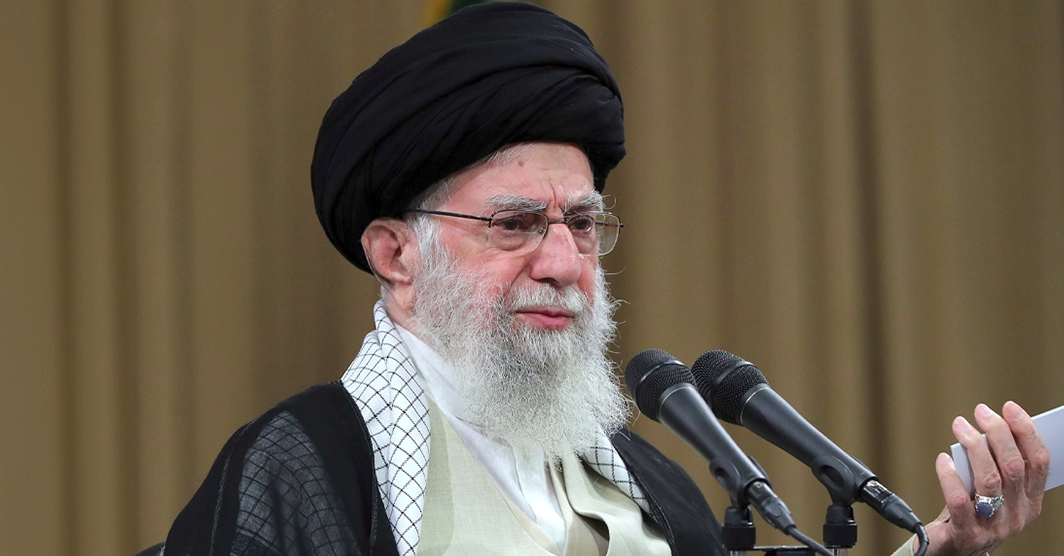Iran’s Supreme Leader Ayatollah Ali Khamenei has ordered an immediate strike on Israel in retaliation for the assassination of Hamas leader Ismail Haniyeh in Tehran, according to three Iranian officials briefed on the order, reports the New York Times.
Khamenei issued the order during an emergency session of Iran’s Supreme National Security Council on Wednesday morning, shortly after Iran announced that Ismail Haniyeh had been killed, said the three Iranian officials, including two members of the Revolutionary Guards. They requested anonymity as they were not authorized to speak publicly.
Iran and Hamas have blamed Israel for the assassination, which Israel has neither confirmed nor denied. Haniyeh was in Tehran for the inauguration of Iran’s new president. During almost ten months of war in Gaza, Iran has tried to balance exerting pressure on Israel with increased attacks from its allies and proxies in the region, while avoiding an all-out war between the two nations.
Options Tehran is Considering
In April, Iran launched its largest and most open attack on Israel in decades, firing hundreds of missiles and drones in retaliation for an Israeli strike on its embassy complex that killed several Iranian military commanders in Damascus, Syria. However, this display of force was telegraphed well in advance, with almost all weapons intercepted by Israel and its allies, causing minimal damage.
It is now unclear how forcefully Iran will respond and whether it will calibrate its attack to avoid escalation.
Iranian military commanders are considering another combined drone and missile attack on military targets in the Tel Aviv and Haifa regions while avoiding civilian targets, said the Iranian officials. One option under consideration is a coordinated attack from Iran and other fronts where it has allied forces, including Yemen, Syria, and Iraq, for maximum effect, they said.
Khamenei, who has the final say on all state matters and is also the commander-in-chief of the armed forces, has ordered Revolutionary Guards and army commanders to prepare plans for both offensive and defensive measures in case the war expands and Israel or the United States strikes Iran, the officials said.
In his public statement on Haniyeh’s death, Khamenei signaled that Iran would retaliate immediately, saying, “We see avenging his blood as our duty,” because it happened on the soil of the Islamic Republic. He said that Israel has set the stage for “severe punishment.”
Statements from Other Iranian Officials
Other Iranian officials, including the new president Masoud Pezeskiyan, the foreign ministry, the Revolutionary Guards, and Iran’s mission to the UN, also openly stated that Iran would retaliate against Israel and that it has the right to defend itself against a violation of its sovereignty.
Netanyahu’s Address Without Mentioning Haniyeh’s Killing – “Difficult Days Ahead, We Are Prepared for Anything”
Israel will respond vigorously to any attack, Prime Minister Benjamin Netanyahu said earlier after the assassination of Hamas leader Ismail Haniyeh in Tehran and a high-ranking Hezbollah military leader in Beirut.
“Citizens of Israel, difficult days are coming. After the blow in Beirut, threats are echoing from all directions. We are prepared for all scenarios and will remain united and determined against any threat. Israel will impose a heavy price for any attack against us, from any side,” the Israeli prime minister said in his televised statement.
Netanyahu stated that Israel had inflicted crushing blows on Iran’s proxies in recent days, such as Hamas and Hezbollah. However, he did not mention Haniyeh’s death, for which threats of retaliation have been issued.
“We have delivered hard blows” to the “enemies,” he said, specifically mentioning Fuad Shukr, who was killed in Beirut. “We eliminated Hassan Nasrallah’s right-hand man (the Hezbollah leader), who was directly responsible for the massacre of children” in the Golan Heights, he added.
Hezbollah Commander Fuad Shukr Found Dead
The body of Hezbollah commander Fuad Shukr was found in the rubble of the building bombed yesterday in the southern suburbs of Beirut, two security sources said today.
The Israeli military announced late Tuesday night that it had “eliminated” Shukr, whom it held responsible for an attack over the weekend that killed 12 children in the Golan Heights. Hezbollah, which is financially and militarily supported by Iran, has not yet confirmed Shukr’s death.
Celebrations in Israel Over Haniyeh’s Death
The news of the assassinations was largely celebrated in Israel as part of fulfilling the promise to hunt down those responsible for the October 7 atrocities.
Social media filled with triumphant messages. Minister Amichai Chikli shared footage of Haniyeh apparently nodding to chants of “death to Israel,” with the caption “Be careful what you wish for” in a post on X.
It was also seen as vindication for security forces after the failures of October 7. “It really revives some of the lost dignity of Israel’s intelligence community,” said retired General Tamir Hayman, who, like Yadlin, served as head of military intelligence.
However, the tactical impact of two complex strikes in the heart of regional capitals will not change Israel’s overall position, ten months after the Gaza war, he said.
“I do not underestimate the significance of this event, but in terms of Israel’s overall strategic posture and the complicated situation we face in stopping the war and achieving all our goals, it really doesn’t change much,” he said.
He called on the government to use its military advantage now to push for a ceasefire agreement and the return of hostages, and then to focus attention on securing the northern borders. “If we continue [to rely] on these very good tactical achievements, we are essentially in the same position as we were yesterday,” he said.
International Reactions
US Defense Secretary Lloyd Austin, speaking after the killings, said the Biden administration is “doing things to lower the temperature” but will come to Israel’s defense if attacked. American officials have led a global diplomatic effort for months to prevent the Gaza war from escalating into a broader regional conflict, but now face an even steeper challenge.
Austin, visiting the Philippines, said he believes a broader conflagration can be avoided despite the threat of retaliation. “I do not believe that war is inevitable. I maintain that,” he told reporters.
The Biden administration has been pushing strongly in recent months for at least a temporary ceasefire agreement and the release of hostages in Gaza, where local health authorities say nearly 40,000 Palestinians have been killed and more than 90,000 injured since October 8.
US Secretary of State Antony Blinken said on Wednesday that Washington was neither aware of nor involved in Haniyeh’s assassination and that a ceasefire agreement for Gaza remains critical.
However, negotiations are likely to stall after the recent attacks, especially following Haniyeh’s assassination, who played a crucial role in the talks from his base in Doha. Qatar described the attack as a “dangerous escalation” that jeopardizes ceasefire talks.
“How can mediation succeed when one party assassinates the other side’s negotiator?” wrote the country’s prime minister, Sheikh Mohammed bin Abdulrahman Al Thani, on X, joining the regional chorus of condemnation.
Russia and Turkey condemned Haniyeh’s killing, with Moscow calling it a “completely unacceptable political assassination,” according to the Tass news agency.
Ask me anything
Explore related questions





